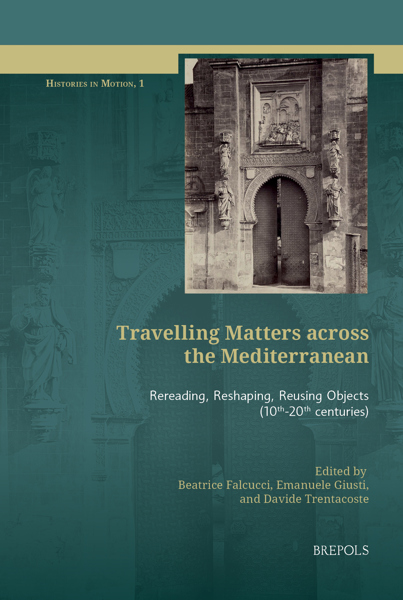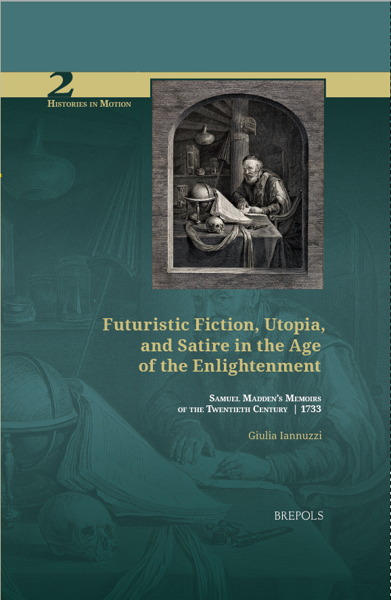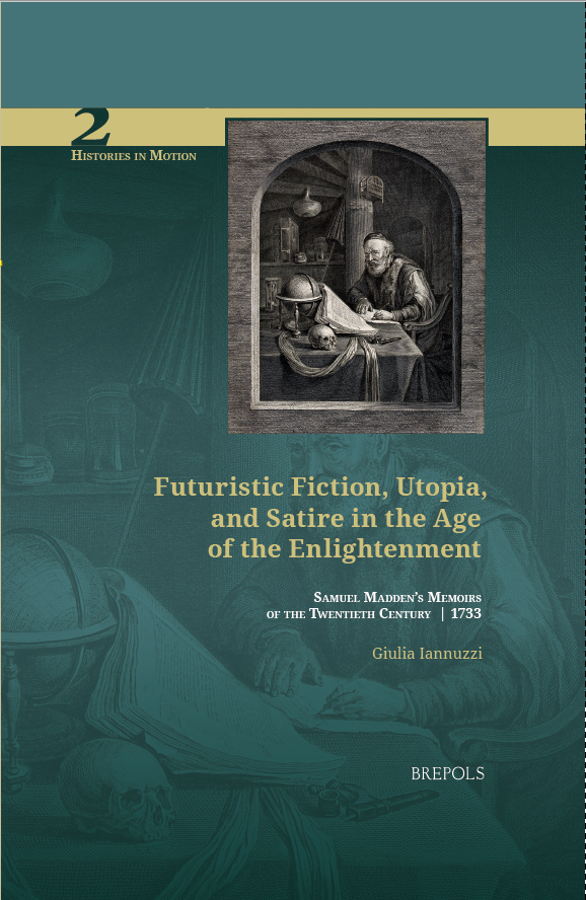
Futuristic Fiction, Utopia, and Satire in the Age of the Enlightenment
Samuel Madden’s 'Memoirs of the Twentieth Century' (1733)
Giulia Iannuzzi
- Pages: 460 p.
- Size:156 x 234 mm
- Illustrations:10 b/w
- Language(s):English
- Publication Year:2024
- € 125,00 EXCL. VAT RETAIL PRICE
- ISBN: 978-2-503-60602-6
- Hardback
- Available
- € 125,00 EXCL. VAT RETAIL PRICE
- ISBN: 978-2-503-60603-3
- E-book
- Available
Memoirs of the Twentieth Century (1733) is a fascinating piece of early eighteenth-century literature and an important chapter in the history of futuristic imagination and of an increasing global interconnectedness. Featuring an essay that contextualises the novel and an annotated edition of the text, this study explores issues central to the Enlightenment project: the negotiation of what falls within the limits of credibility, the existence of irrational beliefs in The Age of Reason, and issues of control over the circulation of knowledge.
"Ianuzzi’s thorough research and nuanced analysis bring out the richness of Madden’s text in ways that reveal its profound contributions to the development of speculative fiction. By carefully examining the historical, intellectual and literary contexts that shaped Madden’s writing, Ianuzzi makes a compelling case for why Memoirs deserves more attention from both scholars of the Enlightenment and those interested in the origins of futuristic and utopian fiction. Her attention to the complex relationship between satire and utopia, as well as her investigation into Madden’s use of multiple prefaces, provides a fresh perspective on a work that, while long overlooked, is rich with insight into the intellectual currents of its time" (Izidor Janžekovic, in History. The Journal of the Historical Association, March 2025)
Giulia Iannuzzi has worked on the history of publishing and translation processes, and on the history of speculative imagination in a comparative perspective. Her articles have been published in academic journals such as History, History of Historiography, Cromohs, Perspectives, American Literary Scholarship, and Journal of Romance Studies.
Published anonymously in 1733, Memoirs of the Twentieth Century is one of the earliest futuristic novels known in Anglophone and Euro-American literature. It foregrounds an acceleration of history brought about by an increasing degree of global interconnectedness, and the exclusion of prophetism and astrology as credible ways to know the future. The work of Samuel Madden, an Irish writer and philanthropist of Whig sympathies, it consists of a collection of diplomatic letters composed in the 1990s, which the narrator claims were brought to him from the time to come by a supernatural entity. Through these correspondences, twentieth-century world scenarios are spread out before the reader, in which British naval power rules the waves and international commerce, while the transnational scheming of the Jesuits threatens the independence of weaker European courts.
This book — which includes a study followed by an annotated edition of the text — assesses the cultural significance of this literary work, as an apt observatory on how historical time as a cultural construction was shaped, during the eighteenth century, by new forms of transnational circulation of information, and by the dubious space carved out in European culture by seventeenth- and early eighteenth-century debates on the nature of historical knowledge.
Through and by means of the Memoirs case study, this volume aims to contribute to a wider cultural history of the future and speculative fiction. The novel’s ironic distancing of beliefs considered to be superstitious and absurd — such as divination techniques and occult and magical disciplines — offers an exceptional testimony to the negotiation of the boundaries of verisimilitude and credibility within a religious enlightenment.
Introduction: Knowledge, Power, and Time in the Age of the Enlightenment
Part I. Samuel Madden’s Eighteenth-Century Memoirs from the Future
I. Where was the Future?
II. When was the Future?
III. An Irish Whig between Philanthropism and Literature
IV. An Eighteenth-Century Twentieth Century
V. An (Unreliable) Historian of the Future
VI. A ‘good genius’ and the ‘scene of things below’
VII. Empirical Science, Global Consciousness, and ‘the History of Future Times’
VIII. Blurring the Dichotomy between History and Fiction
IX. Satirising Past Futures
X. ‘Publishing’ the Letters
XI. ‘This prodigious society’: Anti-Jesuit Satire
XII. Whose Credulity, whose Credibility
XIII. Bookish Mysteries and an ‘alternate George VI’
XIV. Concluding Remarks
Part II. Memoirs of the Twentieth Century
A Note on the Text
Samuel Madden, Memoirs of the Twentieth Century
Notes to the Text
Bibliography
Index

